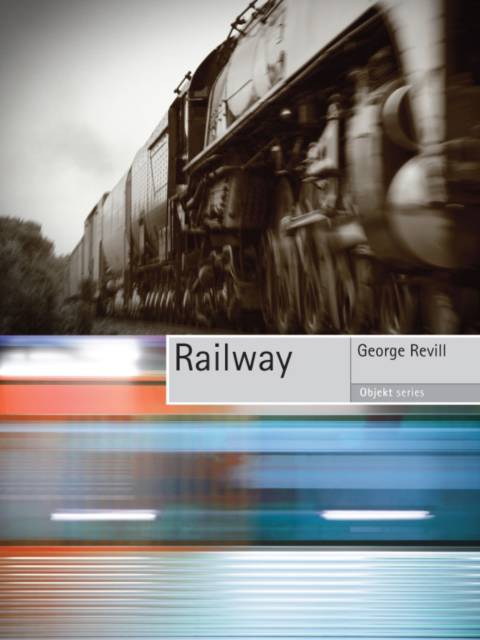
- Retrait gratuit dans votre magasin Club
- 7.000.000 titres dans notre catalogue
- Payer en toute sécurité
- Toujours un magasin près de chez vous
- Retrait gratuit dans votre magasin Club
- 7.000.0000 titres dans notre catalogue
- Payer en toute sécurité
- Toujours un magasin près de chez vous
Description
In the nineteenth century, railways were viewed as a symbol of progress and confidence in technological modernity. In the twenty-first century, the frustrations of gridlocked traffic, record-high gas prices, and the looming fears of climate change have transformed the railway system once again into a symbol of hope that provides the possibility of an environmentally sustainable future. In Railway, George Revill examines the technology and politics of railway history, as well as related themes such as mobility, identity, design, marketing, and sustainability. In both practical and symbolic senses the cultural meanings of railways continue to play a role in how people organize and respond to modern environments, social problems, and technologies. Revill draws from art, literature, music, and film to illustrate how the railway carries meaning for all of us--creating connections and separations, detachment and involvement--from the routine commuter to the enthusiast. As Revill shows, railways inform our everyday language--from fast-track to side-track to going off the rails--and continue to fascinate us today. In this wide-ranging and well-illustrated look at railways across the globe, Revill ultimately reveals how central they are to our understanding of modern everyday life.
Spécifications
Parties prenantes
- Auteur(s) :
- Editeur:
Contenu
- Nombre de pages :
- 288
- Langue:
- Anglais
- Collection :
Caractéristiques
- EAN:
- 9781861898746
- Date de parution :
- 15-04-12
- Format:
- Livre broché
- Format numérique:
- Trade paperback (VS)
- Dimensions :
- 155 mm x 206 mm
- Poids :
- 598 g

Les avis
Nous publions uniquement les avis qui respectent les conditions requises. Consultez nos conditions pour les avis.






